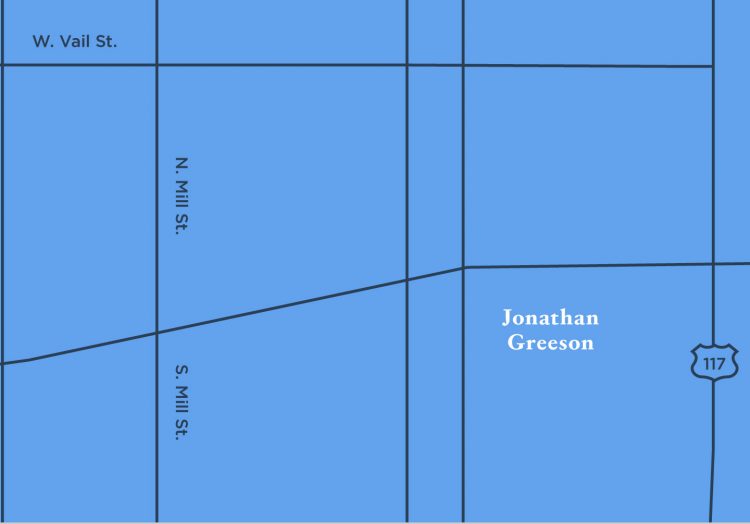Financial advisors can talk about money all day, but we really want to know about you; the client. It’s hard to help you reach your clearly defined, reasonable goals if we don’t take the time to get to know you. While financial planning is a fairly new industry, the concept is as old as mankind. 
Our life cycle was the same then as it is now. We use our formative years to learn, we use that knowledge to earn an income, and then we use our income to cover our current and future needs. The man living in the New York penthouse still asks himself the same questions as the nineteenth century homestead owner:
-
Am I doing enough to keep my family healthy and happy?
-
Am I doing what I can to make sure I am taken care of when I can no longer work?
-
Am I happy or at least pursuing happiness?
I enjoy reading books from different time periods sometimes as an escape from today, but also to see how the population’s view of the world has changed over the years. We often complain that today’s world is so different, but it really isn’t. The struggles and stresses we face today are very similar to what humans faced years ago.
I think part of the difference today is that we find new ways to distract ourselves. For example, in the 1800’s it would take hours to prepare a chicken dinner. It’s hard to find time to feel sorry for yourself when you’re busy plucking a chicken. Not to mention that chicken might be the best meal your family has all week, so you’re under a lot of pressure to not screw up.
-
Am I doing enough to keep my family healthy and happy?
Today, we can have a chicken dinner delivered to our home. If it’s terrible, we can leave a nasty review online and try a different restaurant. Other than food poisoning or choking, our food preparation is not a life or death situation. We no longer have to protect our chickens from wild animals or risk starvation. It really is a great time to be alive!
 Unfortunately, these blessings do give us more time to focus on our stresses. Today we go to work and make enough money for food and shelter. We can pretty much answer the first question in the affirmative. Yes, we’re doing what we can to keep our family alive.
Unfortunately, these blessings do give us more time to focus on our stresses. Today we go to work and make enough money for food and shelter. We can pretty much answer the first question in the affirmative. Yes, we’re doing what we can to keep our family alive.
Could we do better? Sure! Are there people who cannot provide these basic necessities? Absolutely! Maybe once we face our own issues and stop struggling from month to month, then we can start being more helpful to our fellow man!
That won’t be easy because many of us are hanging on by a thread. Mental health is a major issue in our time and it can definitely affect our wallet. Instead of focusing on our own demons, we find ways to distract ourselves. I’ve written on the entertainment economy before, but let’s revisit that concept.
Looking at your typical day, how busy are you? How much stimulation do you require each day? For example, my television is on all day when I’m home. I’m not always watching it, but the background noise makes me more comfortable. Maybe it’s because I need to justify the crazy expensive cable bill or the scary memories of being in a silent hospital room, but I get nervous in silence.
Can you relate? Are we so afraid of being alone with our thoughts that we need to distract our minds with constant stimulation? I’m no psychologist and if you’re having a tough time please seek help from a professional. However, I do believe that as a financial planner, not only should I analyze a client’s expenses, but also look at why the spending occurs.
with constant stimulation? I’m no psychologist and if you’re having a tough time please seek help from a professional. However, I do believe that as a financial planner, not only should I analyze a client’s expenses, but also look at why the spending occurs.
This doesn’t mean I’ll automatically require the client to spend less. We should enjoy our lives, but it must be a balance. If we find ourselves overspending on travel, perhaps we should look at why we need to get away so often. Is it really a vacation or is it a distraction from other issues in our lives?
We’ve all heard of the dangers of alcoholism, but have we ever thought about why we drink? Alcohol is one of the world’s oldest distractions. P.T. Barnum even spoke about how alcoholism was an evil that prevented good men from getting ahead in the world. Two hundred years later and we still face the same problem! Again, we should enjoy our lives, but there must be a balance. If your bar tab, or any other unnecessary expense, is preventing you from saving for retirement, then maybe we should look at what is driving your spending habits.
-
Am I doing what I can to make sure I am taken care of when I can no longer work?
The Richest Man in Babylon is a book published in 1926. One of the many tips it shares is that we should pay ourselves first. Many current books have the same central message. Sadly, we see that message as only making sure we receive a salary, but it is so much more.
We need our salaries to pay our bills and do the activities we enjoy. However, when you pay your mortgage for example, who are you paying? Yes, paying the bill keeps a roof over your head, which has a great value. The only problem is that you aren’t really paying yourself. You are paying the mortgage company until you pay off the loan.
We only truly pay ourselves when we save money in retirement accounts, emergency funds, etc. Our salary may cover our current expenses, but what happens when we can no longer do the job? Even if we can still do our job when we’re 80 years old, will we really want to? Wouldn’t you rather spend time with your grandchildren? What about helping to make the world a better place by volunteering with a nonprofit? We cannot do these things if we’re still

a slave to our paycheck.
Financial freedom allows us to make these choices. By paying ourselves first, we have a better chance of
reaching our goals. Putting money away for future use is the basic definition of financial planning. We all have a finite amount of earning potential throughout our careers. Those resources need to be spread out in order to last for your lifetime. This is where we must find the balance in our lives between enjoying today and preparing for tomorrow.
-
Am I happy or at least pursuing happiness?
This is probably the toughest question because it’s the hardest one for us to really face. Nobody wants to take a real internal assessment of ourselves. Material goods, streaming services, events, and our other desires provide us with some happiness, which is a good thing. We are supposed to enjoy our lives. The problem is that these are temporary moments of joy. When we start feeling sad again, we open the Amazon app and buy ourselves a new toy because it makes us happy. And we deserve that, right?
Again, we have to find a balance here. Is our spending today going to hinder our comfort in the future?
“But Jonathan this $30 shirt will not cause a problem in my retirement. It’s nothing compared to the hundreds of thousands of dollars I’ll need in my IRA.”
You’re probably right, but with all of the opportunities we have to spend money, we have to make sure spending is not becoming a distracting habit. I think we fail to realize our problem because justifying  our spending is so easy. We have the money and that shirt looks great on us. It won’t hurt anyone to spoil ourselves a little. It’s not like we’re addicted to drugs or alcohol, right?
our spending is so easy. We have the money and that shirt looks great on us. It won’t hurt anyone to spoil ourselves a little. It’s not like we’re addicted to drugs or alcohol, right?
Normally, addicts get in trouble because they’re using the drug to fill a void in their life or they’re trying to forget their other struggles for a few minutes. Habitual spending can cause a similar problem. No, the addiction is not nearly as dangerous as drugs and alcohol, but it can have an impact on your future. Getting to the root of a spending problem may help us discover that we’re trying to buy happiness, which is never a good thing.
No, there is not some magic trick to make us happy all of the time. If there is, please tell me! Life is hard. We’re all going to have our good and bad days. We will have success and failures and that is okay. Adam and Eve had everything they could ever want and still screwed up!
My faith in Jesus Christ helps me get through each day and I hope you will let Him help you as well. When we put our hope in earthly things or other people, we’re destined to be disappointed. How often have we said we would be happy if our spouse, child, sibling, parent, or boss did [fill in the blank]? How has it worked out for you?
It’s unfair to place all of our hope for joy in a person. Though unintentionally, they will disappoint us at some point. We all make mistakes, that’s why pencils have erasers. Jesus won’t let us down though. His job is already done because He gave us access to Heaven. Heaven will be so much more than we can imagine, so it makes the problems with the world a little more tolerable. At least, that perspective helps me anyway.
My days can be very frustrating. Not being able to scratch your nose when it itches is infuriating and that’s one of the easier challenges of each day. I try to keep my eyes on the big picture. I know Jesus died for me and He’s waiting for me in Heaven. No, I’m not happy every day, but I have a peace in me that only comes from Jesus. I hope you find that peace as well!
that only comes from Jesus. I hope you find that peace as well!
As we begin this Holiday season, I challenge all of us to focus on our blessings. It’s easy to complain about what we don’t have, but let’s try to be thankful. I think we’ll realize just how fortunate we really are. Then we can focus on the long term goals that you want to pursue.
We can never move forward without examining the root of our problems. Some may very well be serious and we need to seek the help of a professional, but I have a feeling we may realize some of our problems aren’t really that big at all. They may just be distractions holding us back from achieving our greater purpose in life.
If you’re ready to get serious about pursuing your goals, send me an email and let’s get to work!


